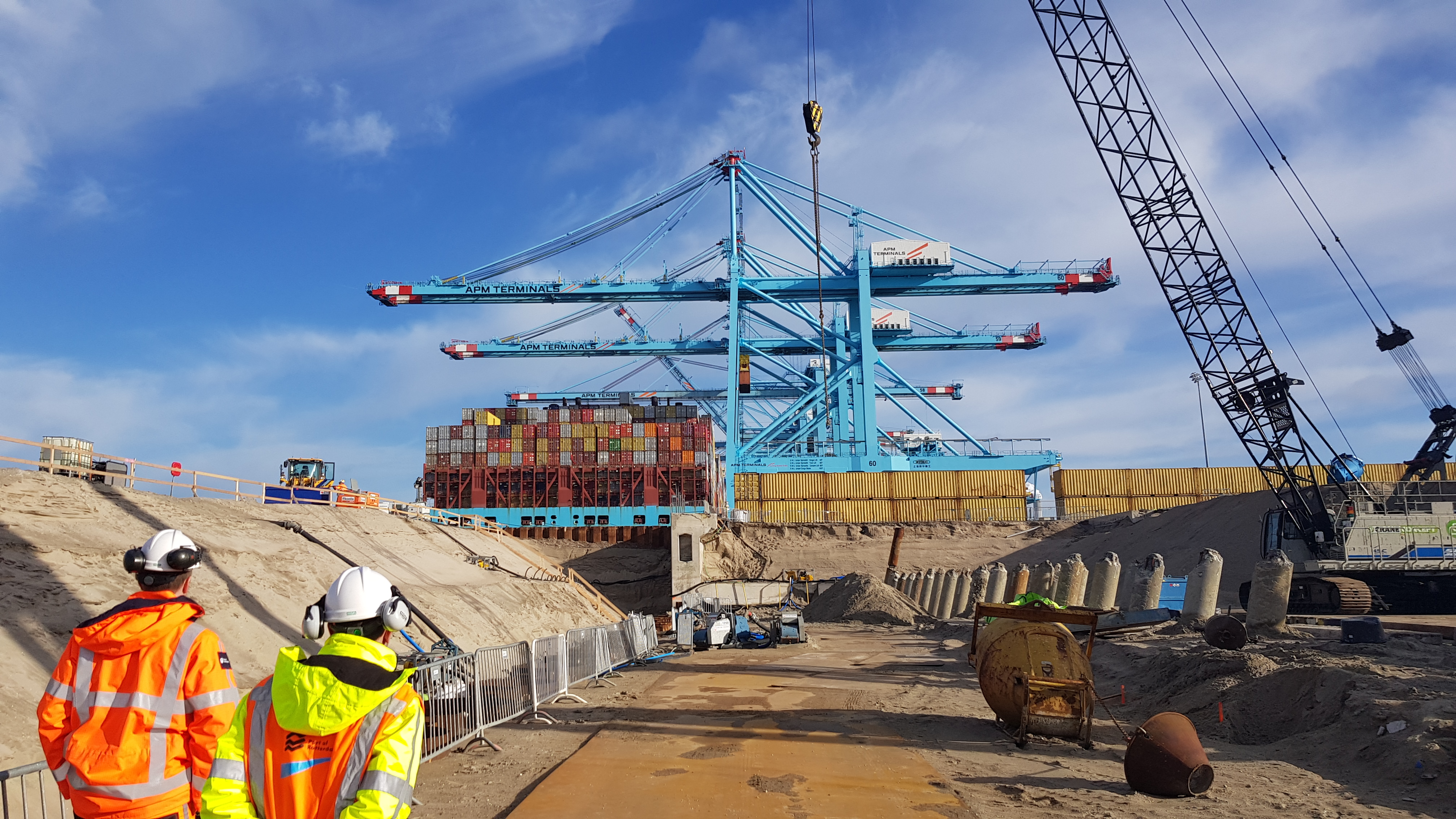TU Delft CEG and Port of Rotterdam Authority are developing a data platform
TU Delft and the Port of Rotterdam Authority are developing a new data platform for ground-retaining constructions. The data platform will make it easier to decide how and when ground-retaining structures, such as quay walls and sheet piling, need to be managed. On June 8, during the Port & Waterways conference, Egbert van der Wal, Director of Port Development, Stefan Aarninkhof, professor of hydraulic engineering (CEG), signed a 'Memorandum of Understanding' in which the joint effort and cooperation with among others DigiShape and SmartPort, was ratified.
A huge amount of project data
Data on ground-retaining constructions is often not easily accessible. Or, because it is shared among various asset owners, it is not fully available. By developing an open data platform on which the Port of Rotterdam Authority and other administrators can share their data, the partners hope to provide more insight into the actual state of various constructions in areas. TU Delft will also use the data provided to develop methods for the better analysis, future-proof replacement and maintenance of infrastructure.
For us at TU Delft, this is a very important and promising development. There is a huge amount of project data that currently remains 'below the surface' and therefore cannot be used for improvements in future projects. We are ready to act with the help of the latest data-analysis techniques
Stefan Aarninkhof
Starting small
Digishape, who is helping to develop the platform, is starting small. “First with two organisations developing a data product to tackle a critical problem in the water sector: the replacement and renovation of quay walls and sheet piles. Once the product is in place and has proven its effect, the entire water sector can use it in the future," according to programme manager Chris Karman.
Start with data from anchor tests
The first project will start in June 2022. Data from anchor tests will provide insight into the proven strength of quay walls. This could show that quay walls are stronger than expected and can be subjected to greater or lesser loads. And project is in progress which can reduce the uncertainty in knowledge about the subsurface on the basis of installation data.
